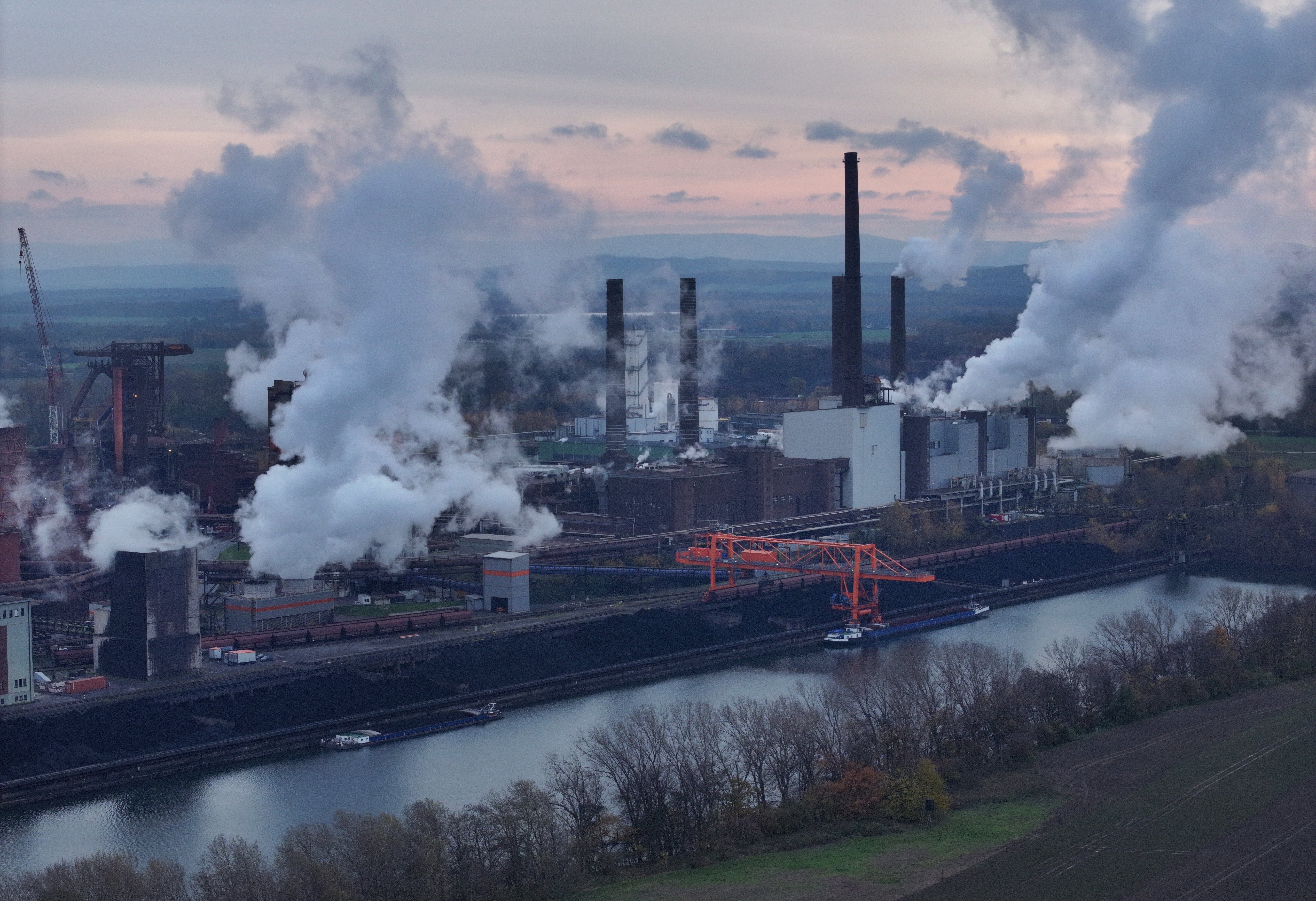With tariffs and ‘coal-powered AI’, tech might finally be getting real again
As the tech industry scrambles to mitigate the worst effects of Trump’s tariffs, it has become apparent that this global sector is reliant on an increasingly complex system – and it could change our devices forever, writes Andrew Griffin


This week, Donald Trump made two pronouncements that should change the way we see technology forever. One is obvious: it was the day that his country-specific tariff rates, announced a week before, would go into effect. The drama was immediately obvious, including in the tech industry, which saw its valuations drop immediately and considerably.
But the second was a little more specific: the same day, he released a host of executive orders focused on the coal industry, including one specifically aimed at powering AI data centres with the fossil fuel. It was a recognition of the often unspoken fact that AI requires vast amounts of energy: Trump said that “all of this new technology that’s coming online” needs “double the energy” that we currently have. He is not alone in pointing this out: OpenAI boss Sam Altman is actively looking to build nuclear fusion plants to power the artificial intelligence of the future, and the day after the executive order was announced a series of AI bosses appeared before congress pleading for more electricity.
But it was the image that might be key. The idea of “coal-powered AI”, summoning as it does an almost steampunk image of power plants and smokestacks powering the future of artificial intelligence, might be one that sticks. Because in a second it seemed to undermine the myth that has built around all of today’s technology: that it drops before us as if by magic, unsullied by the blood and muck that have been required to make it.
At least a large part of the recent excitement about artificial intelligence is not so much about the underlying technology but about the user interface: ChatGPT’s breakthrough was not that it was smarter than previous AI tools, but that it could be interacted with in the straightforward, easy-to-understand way that gave it its name. That has meant that recent developments in AI have tended to obscure the tech that underpins them, which in turn makes it harder to see just how much work has been put into answering those queries. But as the demand for AI grows, that work is about to become much more real.
Similarly, Tim Cook's greatest achievement might not go down as the Apple Watch, AirPods, Vision Pro, or any other products released during his time as Apple CEO, or any future products that might come before his retirement. It might not be the major changes he's made at Apple, from changing its culture to be less aggressive and more liberal or its climate commitments to its work on security, privacy and diversity; nor the personal changes he's made to the world, which include being by far the most powerful gay business leader in history.
Instead, it may be something much more immediate and concrete: the vast infrastructure required to make and then ship hundreds of millions of iPhones to people around the world each year. In 2011, when he became CEO, Apple sold 72 million iPhones; last year, that had more than trebled.
Apple is an unusual technology company because each of those iPhones must be assembled and shipped, requiring a physical operation that is vastly different from most of its competitors such as Meta or Google. Every one of those iPhones must be built, sold, sent and eventually recycled.
That unusual situation is why Apple is uniquely poised to lose out from Trump’s tariffs. Programmes travel a lot more easily across borders. The Apple supply chain and the tariffs have caused widespread disruption in recent days, knocking hundreds of billions off its valuation and creating fears that Apple could be forced to drastically increase the price of their phones. But, taken together, they show just how connected the world has become. Technology is often hailed for its power to connect us all up through social networks and phone calls, but the iPhone itself is a much more physical, much less idealistic reminder, of that same web of global connection.
Cook has been criticised for his part in that system repeatedly. Apple's reliance on China has come with compromises: it means that the company has had to weaken privacy protections for users in the country, for instance. Those who oppose the kind of globalisation it represents argue that more of its products should be made in the US, which is what the tariffs ostensibly aim to encourage. History will judge whether his decisions were good ones, both ethically and for Apple.
But whatever else the tariffs represent – certainly one of the most significant economic interventions in recent years – they are also a reminder that our devices and tech experiences do not simply drop fully-formed into our pockets. They are the product of uncountable real decisions, of real and concrete interventions made by people we will never meet who live on the other side of the globe. That little slab of metal contains a whole world within it; one that might be about to be reshaped in ways we can’t possibly imagine.
A version of this article appeared in the IndyTech newsletter. You can register for it and the rest of The Independent’s newsletters here



Join our commenting forum
Join thought-provoking conversations, follow other Independent readers and see their replies
Comments